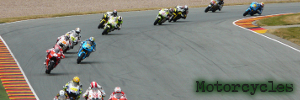















THIRTY-SIX MILES AN HOUR. |
|---|

|
The New York Times
June 5, 1899
Good Record in a Motor Cycle Race—How They Were Ridden and Driven.
From The London Mail
The motor cycle was on its trial at the Crystal Palace yesterday, and it came out of the test with flying colors. The ordinary leg-propelled bicycle records were left hopelessly behind.
The Motor Car Club offered three medals for the winners of a five-mile race. Four cyclists competed—C. Jarrott, C. G. Wridgway, J. W. Stocks, and H. E. Zacharias. When they came on the track with their strangely furnished tricycles a crowd gathered from all parts of the grounds. Cycle races are familiar enough at the Crystal Palace, but a cycle race run by petroleum was a new sensation. It ended, as all new sensations should, with an achievement.
The numbers went up, the pistol was fired, and four men, leaning heavily forward, pedaled with might and main to get some way on their machines. Petroleum is excellent in the full flight of a race, but for the purposes of starting and stopping, and even for an additional spurt in a hard moment, the wise cyclist puts his trust in his legs.
Jarrott said that the man who got the lead would win. This was rather overrating the strength of his two competitors, but in the end his words came true. Pushing for dear life at the start, he swished round the first bend a little ahead of Wridgeway. Then began a determined race. Stocks and Zacharias fell out, but Wridgeway hung on to the hind wheel of the leader, and for lap after lap the pair swished round with less than a yard between them, crouching over their handle bars just like an ordinary racer who is his own motor power.
When the machines were in full blast they ceased to pedal. But they crouched still, bending sharply over at the corners to see that they did not lose an unnecessary inch at the bend, and touching mysterious taps to regulate machinery and speed. The noise was like the rattle of small arms, and the pace was breathless. As they whirled round the corners one shivered at the thought of what would happen if there was a collision. But the steering was excellent, and there was no time to waste in reflecting on accidents.
The last lap was announced. Wridgeway pedaled furiously in the attempt to gain the advantage of the corner. But there was a wary man ahead, and Jarrott dashed over the line with his lead still in hand. When the time went up—8:22 3-5—there was a hearty cheer, flavored with a hoot of triumph from the motor cars on the bank. As the ordinary bicycle record for the distance is 8:47 1-5, it was obvious that in the matter of pace leg power is superseded. Thew and sinew have fallen before petroleum.
